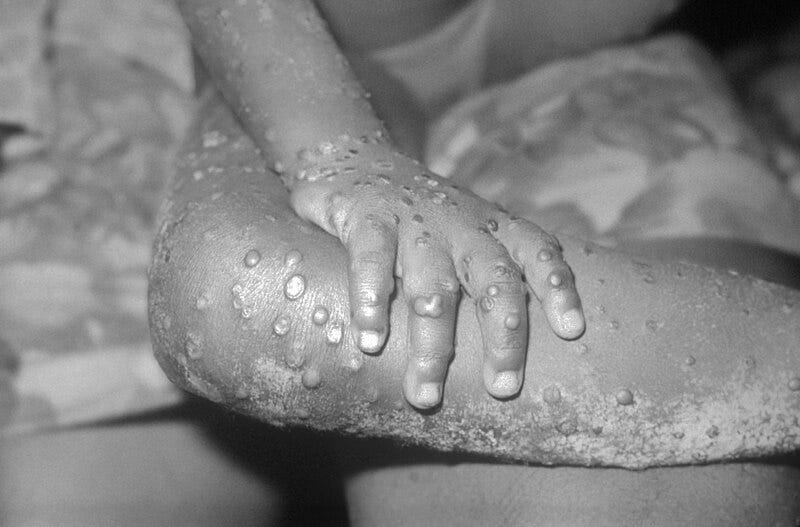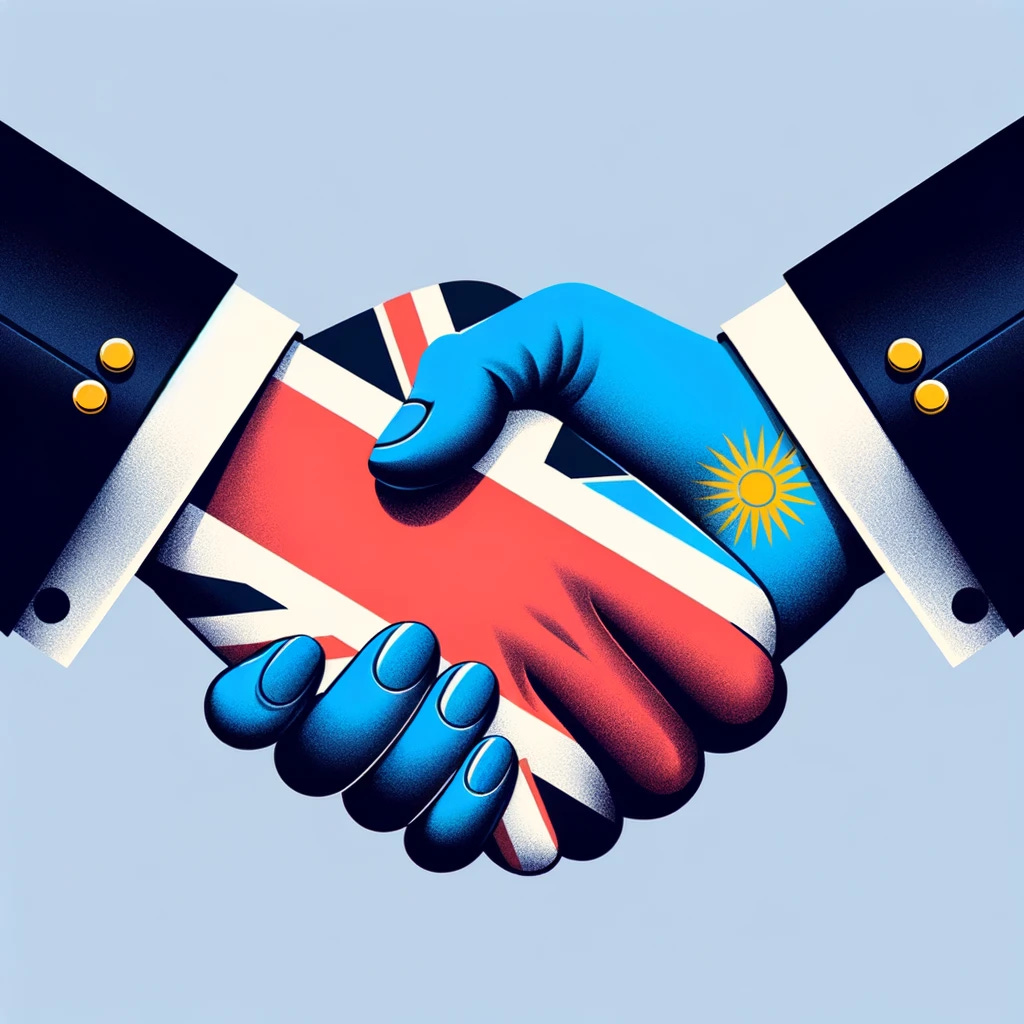🔅 DRC President Calls Rwandan Leader Hitler
Plus: Plus, WHO Has Concerns Over Deadly MPOX Outbreak, Britain's Costly Asylum Relocation Plan & Uganda's Big Energy Plans
Photo of the day
“Minutes to landing”, Lagos, Nigeria

Money Matters — Year to Date
🟢 Nigerian SE: 71,541.74 (+39.59%)
🟢 Johannesburg SE: 73,790.85 (+1.02%)
🟢 Ghana SE: 3,130.60 (+28.10%)
🔴 Nairobi SE: 93.94 (-26.30%)
🟢 US S&P 500: 4,604.37 (+20.40%)
🔴 Shanghai Composite: 2,969.56 (-4.72%)
*Data accurate as of the close of markets across the continent
Brief & Bright: Africa's Top Five
DRC President Calls Rwandan Leader Hitler, Promises He'll "End Up Like Hitler"
DRC President Félix Tshisekedi has compared his Rwandan counterpart, Paul Kagame, to Hitler. At a rally in Bukavu, Tshisekedi also promised that Kagame would "end up like Hitler" for allegedly backing rebels in the eastern part of the country. Kagame's government has denied these claims, but Tshisekedi is determined to win a second term and is rallying support by taking jabs at his neighbour. Elections are less than two weeks away. Meanwhile, the situation in the east remains volatile, with M23 seizing a town in the east last week after violently clashing with the army, which has taken on an expanded role as UN and East African peacekeeping forces withdraw from the mineral-rich, conflict-stricken region. The deep-seated tensions between the DRC and Rwanda are rooted in the complex aftermath of the 1994 Rwandan genocide and subsequent conflicts, including the First and Second Congo Wars. The resurgence of the M23 rebel group in eastern DRC, which the UN and the US suggest is supported by Rwanda, has reignited these long-standing hostilities. President Tshisekedi's incendiary remarks against President Kagame, just weeks before the DRC's elections, reflect the ongoing geopolitical and security challenges in the Great Lakes region.
No Dice: Latest HIV Vaccine Trial Fails to Impress

Another one bites the dust. After enrolling over 1,500 healthy adults in Uganda, Tanzania, and South Africa, the PrEPVacc trial for an experimental HIV vaccine has been stopped early. It turns out the vaccine wasn’t effective in preventing infection. This is a major setback in the fight against HIV, which has claimed 40 million lives globally. Another 39 million are living with HIV, the majority of them in Africa. And while there are drugs that can reduce the risk of getting HIV and treatments that can control the virus, an HIV vaccine would be a game-changer. But alas, the search continues. This was the only remaining active HIV vaccine efficacy trial in the world, and it’s been terminated.
MPOX Madness: WHO Concerned About Deadly Outbreak in DRC
There’s a severe form of pox spreading in the Democratic Republic of Congo, and it’s not messing around. It’s killed almost 600 people this year, mostly children, and there have been over 13,000 cases reported. The WHO is “very worried” and is working with the authorities on a response. They’re also concerned about a new strain that’s more virulent. The good news? There’s a vaccine and antiviral treatment in the works. The bad news? It’s not readily available, and the DRC needs some regulatory help to get its hands on it. Monkeypox is a virus that spreads through close contact and causes flu-like symptoms and pus-filled lesions. It can also spread through sexual contact, which is a major concern for sex workers in the country.
The Cost of Britain's Asylum Relocation Plan: A Pretty Penny
It turns out that deterring illegal migrants comes at a price—$300 million, to be exact. That’s how much Britain is paying Rwanda for their plan to relocate asylum seekers there. But don’t worry, they’re not done yet. The UK is set to send another $63 million next year. And get this: the scheme hasn’t even been put into action yet, thanks to legal battles and a resigned immigration minister. But hey, the new guy in charge says it’s all part of a grand investment to save money on housing asylum-seekers in the UK. And just in case you were wondering what the view on the plan is from a Rwandan perspective, here's a take on it.
Uganda's Big Energy Plans: Clean Power and Controversial Oil
Uganda wants to bring electricity to all of its 45 million residents by 2030, and they're not messing around. They're planning to increase their clean energy capacity twentyfold in the next 20 years, with a focus on solar, nuclear, and geothermal sources. But how would they fund such an ambitious plan, you ask? The plan is to use revenue from an oil pipeline being built across the country. The pipeline has received pushback from environmentalists, but Uganda is determined to achieve universal energy access and reduce reliance on polluting cooking fuels like charcoal and wood. Their energy minister says the plan is steep but doable, and the International Energy Agency agrees. Uganda discovered vast amounts of oil in 2006 in its Albertine Rift basin near Lake Albert. With estimated reserves of about 6.5 billion barrels of oil, of which about 1.4 billion are considered recoverable, this discovery has been called a game-changer for the nation's economic prospects. The plan to utilize revenue from the oil, particularly from the East African Crude Oil Pipeline (EACOP), which is set to be one of the longest-heated crude oil pipelines in the world, is central to funding Uganda's clean energy initiatives. The world is watching as Uganda attempts to leverage its oil wealth to achieve a greener, more energy-secure future by 2030, navigating the challenges of economic growth, environmental sustainability, and energy access.
Food for Thought
“A roaring lion kills no game."
— Ugandan Proverb







